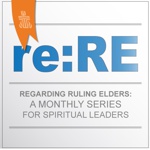I dread meetings. As a lifelong Presbyterian, I am embarrassed to admit this. Meetings can feel tedious, frustrating, confusing, and so unspiritual.
Meetings are a significant part of how we, as people of faith, discern, organize, and execute decisions and actions. They are how we get things done. But most importantly, it is through meetings that together we listen to and act upon God’s leading.
I’ve been reflecting on what makes meetings challenging for me. I am asking myself questions and looking at what I can do about it. While your experiences and context are different than mine, perhaps one, or more, will strike a chord for you.
- Am I using my voice? Am I helping other voices to be heard?
I have been attending an interfaith meeting for my small city. It is a coalition of representatives from different faith communities who believe in peacemaking and justice, and is still in formation at the present. At a recent meeting, we had a difference of opinion. I had something to contribute, but wasn’t able to jump into the discussion. This is a familiar experience for me as a quiet and introverted Asian American woman. I can be intimidated by the rapid give-and-take of many discussions.
But I am going to this group’s retreat, primarily to get to know other people better. As a relational person, I know I’ll feel more “at home” as deeper connections are formed. And I am praying that God will create spaces for me to speak. With time, I will hope to help other quiet members use their voices, too.
- What do I have to offer to this group?
I have a passion for racial justice. As a Japanese American woman whose family was interned during World War II, with a father who had the courage to speak up for civil rights, blessed by African American friends who have taught me so much about being black in this country, and adult children who work in the area of racial justice, I am still learning in so many ways. But I also know it is part of what I offer any group.
- What can I do to take care of myself physically, emotionally, and spiritually?
Meetings take energy and our loving attention. For one organization, I know that our meetings will be long. My back bothers me with too much sitting and I have a long drive just to get there so, as often as I can, I get there early, just to give myself time to walk some before the meeting.
Emotionally, meetings can bring up family-of-origin issues. When I am in charge of a meeting, and things start to go awry, my oldest child mentality can kick in, and I can become anxious. I take too much responsibility for what is or is not happening. Naming what we bring to the table ahead of time can help us stay present to what is really going on, and allows us to trust the process.
I am learning to pray for meetings ahead of time. It may be for a certain issue, dynamic, or concern. I trust that God hears, and it gives me peace, a surer footing as I step into the room.
A few months ago, someone heaved a rock through a window at the Islamic Center in our town. The interfaith coalition, which I mentioned earlier, and other groups communicated, checked with the imam, and decided to show up on Sunday afternoon as a sign of support. It was short notice, and the imam expected a dozen or so people, maybe from a church or two, after worship.
More than one hundred people showed up—young people, seniors, families with their children, walking and bicycling straight down the street to the Islamic Center with signs, smiles, and good cheer. They filled the small parking lot and spilled over onto the sidewalks. A friend who spoke with the imam as he circulated among the crowd said that he would never forget the deep gratitude in this man’s eyes.
This is why I “hang in there” with meetings. As organized people, no matter what group we are, whether we are a church, a community service, or an interfaith coalition, we can walk shoulder-to-shoulder against the tide of all that grieves the heart of God. And we can and do make a difference—in Jesus’ name.
Discernment for Meetings
- Am I using my voice? Am I helping other voices to be heard?
- What do I have to offer to this group?
- What can I do to take care of myself physically, emotionally, and spiritually?
The Reverend Dr. Diana Nishita Cheifetz is a spiritual director, serving lay leaders and clergy in the San Francisco Bay area, the U.S.A., and internationally. Her website is www.spiritualdirectionforpastors.com.
For more about the information provided here, please contact Martha Miller at martha.miller@pcusa.org and browse the Ruling Elders website.

